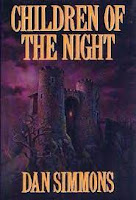The hype machine that is a good chunk of the internet will, undoubtedly, have a lot of positive things to say about speculative fiction published in 2023. Me not so much. Having read twenty-three books published in 2023, the year feels decidedly ho-hum. There are only a couple books I feel strongly about recommending. Why? Maybe because the market continues to be saturated, meaning it's more difficult for books to distinguish themselves or feel distinguished. Maybe because quality is more evenly dispersed. Maybe because identity politics continue to play too strong a role in reviews, awards, and who gets published. Maybe because I'm a thousand+ books deep into my sf&f journey, meaning true satisfaction is more difficult to come by as more and more of speculative fiction's true gems are consumed. They can't all be 5 STARS!!, which is what the hype would have it...
This is all a long winded way of saying there wasn't a lot of competition for Speculiction's novel and anthology/collection of the year. I read the “best” novel early in the year, and if it wasn't for bormgans, I wouldn't even have a “best” anthology/collection. <puff-puff> Let's blow the dust off the velvet curtain and see what they are.






































